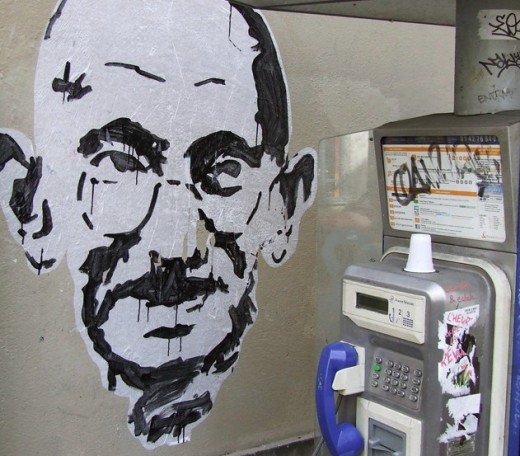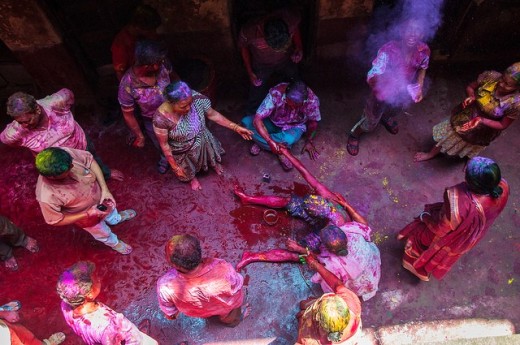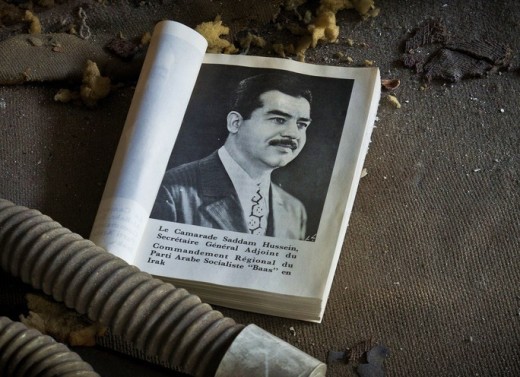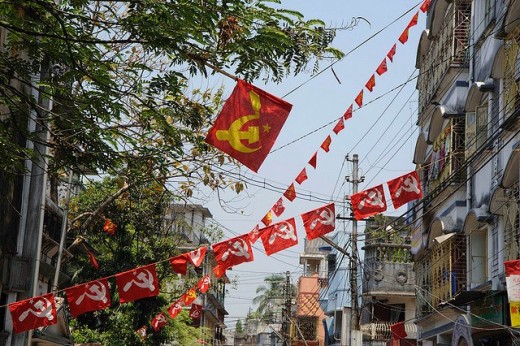East vs West: Clash of Civilizations or Collective Madness?

NEWS JUNKIE POST
Mar 28, 2013 at 9:33 am There is a rather curious and utterly confessional account of Mohandas K. Gandhi’s failure to become an Englishman in his book: An Autobiography or The Story of My Experiments with Truth. In Chapter XV in particular, modestly titled “Playing the Englishman,” Gandhi makes himself the object of his own ridicule. His initial experience with the West was rather tormenting; the indictment of the West by his older self would become more modest and damning. Gandhi’s dismissive attitude was never shared by his contemporaries, most notably Jawaharlal Nehru, Subhas Chandra Bose, and Nobel laureate Rabindranath Tagore, who vehemently registered their disagreement. Tagore rightly foresaw the inherent danger in the fight against colonialism: namely that this would mean that the people of colonies might be deprived of the benefits of knowledge produced in West merely on the grounds of it being western. That colonialism could lead to xenophobia is something Tagore found disturbing and on which few agreed with him.
There is a rather curious and utterly confessional account of Mohandas K. Gandhi’s failure to become an Englishman in his book: An Autobiography or The Story of My Experiments with Truth. In Chapter XV in particular, modestly titled “Playing the Englishman,” Gandhi makes himself the object of his own ridicule. His initial experience with the West was rather tormenting; the indictment of the West by his older self would become more modest and damning. Gandhi’s dismissive attitude was never shared by his contemporaries, most notably Jawaharlal Nehru, Subhas Chandra Bose, and Nobel laureate Rabindranath Tagore, who vehemently registered their disagreement. Tagore rightly foresaw the inherent danger in the fight against colonialism: namely that this would mean that the people of colonies might be deprived of the benefits of knowledge produced in West merely on the grounds of it being western. That colonialism could lead to xenophobia is something Tagore found disturbing and on which few agreed with him.
A lot has happened since then. Post-1991 America has emerged as the world’s sole hegemonic power. I grew up in a densely-populated Muslim neighborhood of Kolkata (Calcutta), the capital of West Bengal where bright, colorful and overtly-lit shopping malls and shanties in black and white are part of our collective memory. The walls of our area were a canvas where Marxism and Urdu (an Hindustani dialect) had combined in a beautiful symmetry. Red-color hammer, sickles, stars and revolutionary slogans in Urdu: these are my earliest memory of my city. When the first gulf war took place in 1991, I was very young, but I do remember one day when I visited a watchmaker’s shop with my father, seeing for the first time a poster of the man whom I would later recognize as Saddam Hussein. It was easy to remember him. He shared my father’s surname. His posters with a parrot-green background proliferated everywhere, from walls to newspapers, to copies of children to barber shops where toothless old men sat and yawned while hearing All India Radio’s commentaries on cricket. A lot of money was made by people then, as my mother told me few days ago while we discussed this topic. It was around this time that people marched in the streets. The slogan “Saddam Hussein jang karo hum tumhare saath hai” (Saddam Hussein fight the war we are with you), would rise in the air of my city, crash with the walls only to fall back louder on my ear drums. I was thrilled. All around there were green and sometimes red flags.
Saddam is dead now, but the people’s anger has not abated. Wars in Afghanistan and Iraq have added red chilly powder to an injury. On September 11, when the World Trade Centers fell, there was a sense of relief in most people in our city, who experienced a tinge of pleasure from the secret knowledge that our neighbors too have had such an experience. What is disturbing is: How is it possible for people to chant wartime slogans and feel happy and united? Is it not a symptom of a deep civilizational crisis, when war is seen as the only way to redeem history? When children march in the streets against war, what is one to call it: madness or an act of utter desperation? And now, almost as if in a logical outcome of our collective madness, India is set to elect as Prime Minister Narendra Modi: a man whom the Supreme Court of India has publicly labeled a “modern day Nero” for his superintendence of communal riots in Gujarat in 2001. We have no one to blame but ourselves. Already, media houses such as India Today are hosting lavish conferences that present Mr. Modi as someone who is “not-such-a-bad-man.”
On the other side, the West, almost as a surreal joke, awards Henry Kissinger and Barack Obama the Nobel Peace Prize. To continue the joke, this year Clinton is a potential candidate for the prize. While the Western world takes pride in free speech and human rights, it imprisons and publicly harasses Julian Assange. The ban by the French Government on Sikhs from wearing their turbans outraged even the right wing of India’s Bharatiya Janta Party (BJP). A sizable section in India does not take seriously the West’s argument to wage war to “promote grass roots democracy, respect for human rights and free speech,” which is why in 2001 the BJP-led National Democratic Alliance government stopped sending Indian troops to fight the imperialist war in Afghanistan. New Delhi back then witnessed one of the most massive anti-war rallies organized by leftist parties. When western diplomats talk earnestly about democracy and human rights, most people here laugh at them. East and West, we live in the darkest of the times. Our beliefs have melted like slabs of ice under heat. What do we do? Where do we go? Madness has become our collective fate. Every morning one wakes up to see humanity hanging on a scaffold near one’s verandah.
Editor’s Notes: Photograph one by Miguel Donvez, photograph two by Akash Mondal, photograph three by de Erisch, and photograph four by Goutam Roy.
Related Articles
- September 9, 2013 Creeping Fascism Under a Fog of Morality
- January 9, 2014 India’s Common Man Party (AAP) Challenges a Corrupt Two-Party System
- May 30, 2013 India’s Shameful Class Divide
- May 22, 2014 The Moral Economy of India: Modi as the Anti-Gandhi
- December 6, 2010 The Empire Is Collapsing, and Americans Will Be the Last to Know
- September 16, 2012 Muslim Rage: ‘Clash of Civilizations’ as Imperialism Key Narrative















4 Responses to East vs West: Clash of Civilizations or Collective Madness?
You must be logged in to post a comment Login